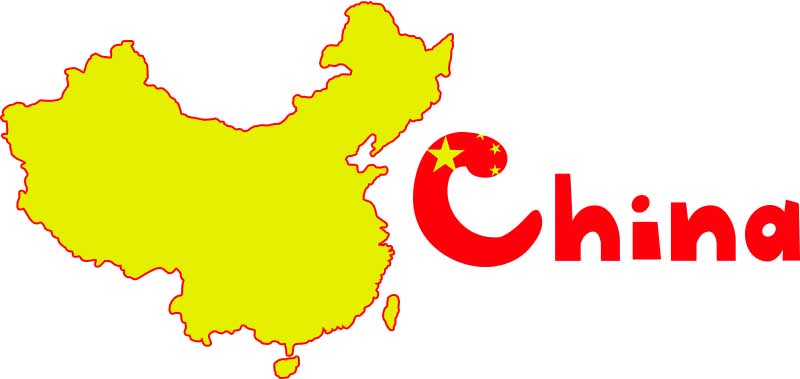China is a hot topic for online privacy advocates — and not in a good way. Whether you’re visiting, relocating or a long-term resident of the country, you’ll need a VPN to keep your internet activity safe and secure.
But what, exactly, makes China so different from the rest of the world when it comes to internet privacy? And what does a VPN do to level out the playing field?
Here are the top 10 reasons why you need a VPN in China. Don’t become an example — put your privacy first!
Top 10 Reasons Why You Need a VPN in China
1. In China, the Government Runs the Internet
In most countries around the world, the internet is (for the most part) free and open. Sure, some sites are off-limits due to various laws, but in general, you can see what you want to see, even if it’s unpopular, unwise or in poor taste.
But in China, the public internet is controlled by the government. Anything the ruling party doesn’t approve of may as well not exist, because it’s impossible to view.
As we’re about to see, that has wide-ranging repercussions for your online freedom.
2. Many Popular Social Media Sites Aren’t Available in China
What does your daily online routine look like? Chances are you scroll through your Facebook feed, watch a couple of YouTube videos and send out a few tweets to your Twitter followers.
Unfortunately, none of that is possible in China.
That’s because most global social media sites are banned in China and can’t be accessed through the normal internet.
But a VPN enables you to access social media without being blocked. It hides your web traffic from government internet censors and prevents you from getting caught in the blacklist.
3. International News Is Censored in China
No matter where you are in the world, it’s important to keep up with what’s going on around the globe.
But in China, your access to international news from many globally-trusted sources will be limited or even nonexistent.
Sources like the BBC, the Guardian and the New York Times are blocked in China. And the blacklist includes many other sites, both high- and low=profile, that have published articles that criticize China.
In China, the only way to read news from these sources is by accessing them through a VPN. A VPN prevents the government from knowing what sites you’re visiting — and what they don’t know about, they can’t block.
4. China Filters Your Web Searches Through the Great Firewall
Even the most basic element of using the internet — searching the web — is difficult in China.
For starters, Google and other popular search engines are blocked by the Great Firewall. You’ll be forced to use government-approved search engines that don’t show you all the right results.
And you won’t be able to search for thousands of different keywords, ranging from “Winnie the Pooh” to “Dalai Lama” to, fittingly, “Great Firewall.”
A VPN keeps your web searches private and lets you use whatever search engine you like, including Google.
5. The Chinese Government Monitors What You Post Online
Even if all of your apps and accounts are approved by the government, you’ll still face censorship when making posts.
If your social media or forum posts contain any banned keywords, they won’t be sent — and you’ll probably end up on a government list.
But a VPN prevents the censors from seeing the contents of your posts and messages. You’ll be able to say your piece no matter what site or service you’re using.
6. Your Communication Outlets Are Limited in China
WhatsApp, Facebook Messenger, Gmail… all of the apps you typically use to stay in touch with friends and family won’t work in China. The government wants you to use its own apps so that it can monitor and censor your most private communications.
Not only will a VPN unblock these apps, it’ll also keep your messages out of the government’s view. High-quality encryption means that nobody except your intended recipient can eavesdrop on your conversations.
7. A VPN Lets You Watch Streaming Content in China
Not even Netflix is safe from the Great Firewall. Catching up on your favorite shows won’t be possible in China unless you use a VPN.
That’s because a VPN lets you change your location, letting you access streaming content from different countries even if you’re in China. You can stream that great big US Netflix library even when you’re across the sea.
8. Unapproved Internet Usage Can Get You in Serious Trouble
Being unable to view the websites you want in China is bad enough as it is. Add China’s strict laws to the mix and you have a recipe for disaster.
For example, criticizing China’s response to the coronavirus online could land you in jail — even if you’re a doctor.
And if you make a popular post that portrays China in a less-than-shining light, you could be imprisoned for up to three years.
That’s why using a VPN to prevent the government from seeing your web activity is absolutely necessary. If you don’t, it could literally ruin your life.
9. VPNs Protect You from Hackers and Data Thieves
The government isn’t the only internet danger you face in China. Hackers and data thieves are everywhere, and they don’t let the Great Firewall stop them from making you their next victim.
Whether you’re on public or private WiFi, hackers pose a serious threat to your security. But a VPN’s advanced encryption prevents them from stealing your personal information and private data.
10. A VPN Prevents Websites from Knowing You’re in China
Statistics show that up to 99% of brute force hacking attempts come from China. Between that and China’s strict internet laws, many websites block or limit visitors with Chinese IP addresses.
Online games, e-commerce sites and forums are particularly likely to block Chinese visitors. The only way to access them if you’re in China is to use a VPN.
By changing your IP address to one from another country, a VPN opens these sites back up to you. It’s the only way to enjoy a truly open internet when you’re in China.



